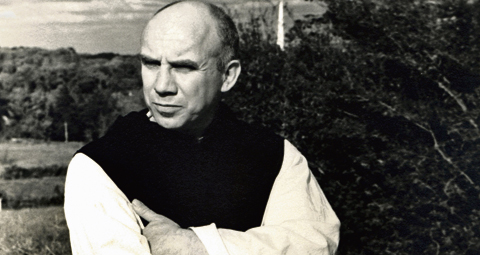January 16 | ![]() 0 COMMENTS
0 COMMENTS ![]() print
print

Importance of splitting the moral atom
By Fr Ronald Rolhesier
We can never be challenged too strongly with regards to being committed to social justice. A key, non-negotiable, summons that comes from Jesus Himself is precisely the challenge to reach out to the poor, to the excluded, to those whom society deems expendable.
Therefore the huge, global issues of justice should preoccupy us. Can we be good Christians or even decent human beings without letting the daily news Baptise us? The majority of the world still lives in hunger, thousands are dying of Ebola and other such illnesses, countless lives are torn apart by war and violence, and we are still, as a world, a long ways from dealing realistically with racism, sexism, abortion, and the integrity of physical creation. These are major moral issues and we may not escape into our own private world and simply ignore them.
However, precisely because they are so mammoth and important, we can get the impression that the other moral issues we have to deal with, issues of private morality, are not as important. It is all too easy to conclude that, given the mega-problems in our world, it doesn’t matter much how we live in the deeper recesses of our private worlds.
Our private, little moral concerns can look pretty petty when weighed against the problems of the world as a whole. Do we really believe that God cares much whether or not we say our morning prayers, gossip about a colleague, nurse a grudge or two, or are less than fully honest in our sexual lives? Does God really care about these things?
Yes. God cares because we care. Large, global issues notwithstanding, issues of personal integrity are generally what make or break our happiness, not to mention our character and our intimate relationships. In the end, they aren’t petty concerns at all. They shape the big things. Social morality is simply a reflection of private morality. What we see in the global picture is simply a magnification of the human heart.
When ego, greed, lust, and selfishness are not dealt with inside the private recesses of the heart, it’s naive to think that they will be dealt with at a global level. How are we to build a just, loving world, if we cannot, first of all, tame selfishness inside us? There will be no transparency at a global level as long as we continue to think it’s okay to not be transparent in our private lives. The global simply reflects the private. The failure to recognise this is, to my mind, the elephant in the room in terms of our inability to bring justice to the earth.
Social action that does not have private morality as its base is not spirituality, but simple political action, power dealing with power—important in itself, but the not to be confused with real transformation. The Kingdom of God doesn’t work that way. It works by conversion and real conversion is an eminently personal act.
Carlos Castaneda, the Native American mystic, writes: “I come from Latin America where intellectuals are always talking about political and social revolution and where a lot of bombs are being thrown. But nothing has changed much. It takes little daring to bomb a building, but in order to stop being jealous or to come to internal silence, you have to remake yourself. This is where real reform begins.”
Thomas Merton (above) makes the same point. During the 1960s, when so many intellectuals were involved in various social struggles, Merton was tucked away in a monastery, far—it would seem—from the real battlefronts. Stung by outside criticism of his monastic seclusion, he admitted that to most outsiders it ‘must seem like small potatoes’ to be engaged mainly in a war against one’s private demons. However, he still believed that he was fighting the real battle—that of changing hearts. When you change a heart, he says, you have helped bring about some permanent structural, moral change on this planet. Everything else is simply one power attempting to displace another.
Private morality and all that comes with it—private prayer and the attempt to be honest and transparent in even the smallest and most secret of things—is the core from which all morality takes its root.
Jan Walgrave, commenting on the social importance of mysticism, suggests: “You can generate more energy by splitting a single atom than you can by harnessing all the forces of water and wind on earth. That is precisely what Jesus, Buddha, and Mohammed did. They split the inner atom of love. Great energy flowed out.”
John of the Cross—in teaching about the vital importance of honesty in small things, says: “It makes no difference whether a bird is tied down by a heavy rope or by the slenderest of cords, it can’t fly in either case.”
Private morality is not an unimportant, unaffordable luxury, a soft virtue, something that stands in the way of commitment to social justice. It’s the deep place where the moral atom needs to be split.
— Fr Ronald Rolheiser is a priest and member of the Missionary Oblates of Mary Immaculate. He is president of the Oblate School of Theology in San Antonio, Texas. Visit his website at www.ronrolheiser.com










